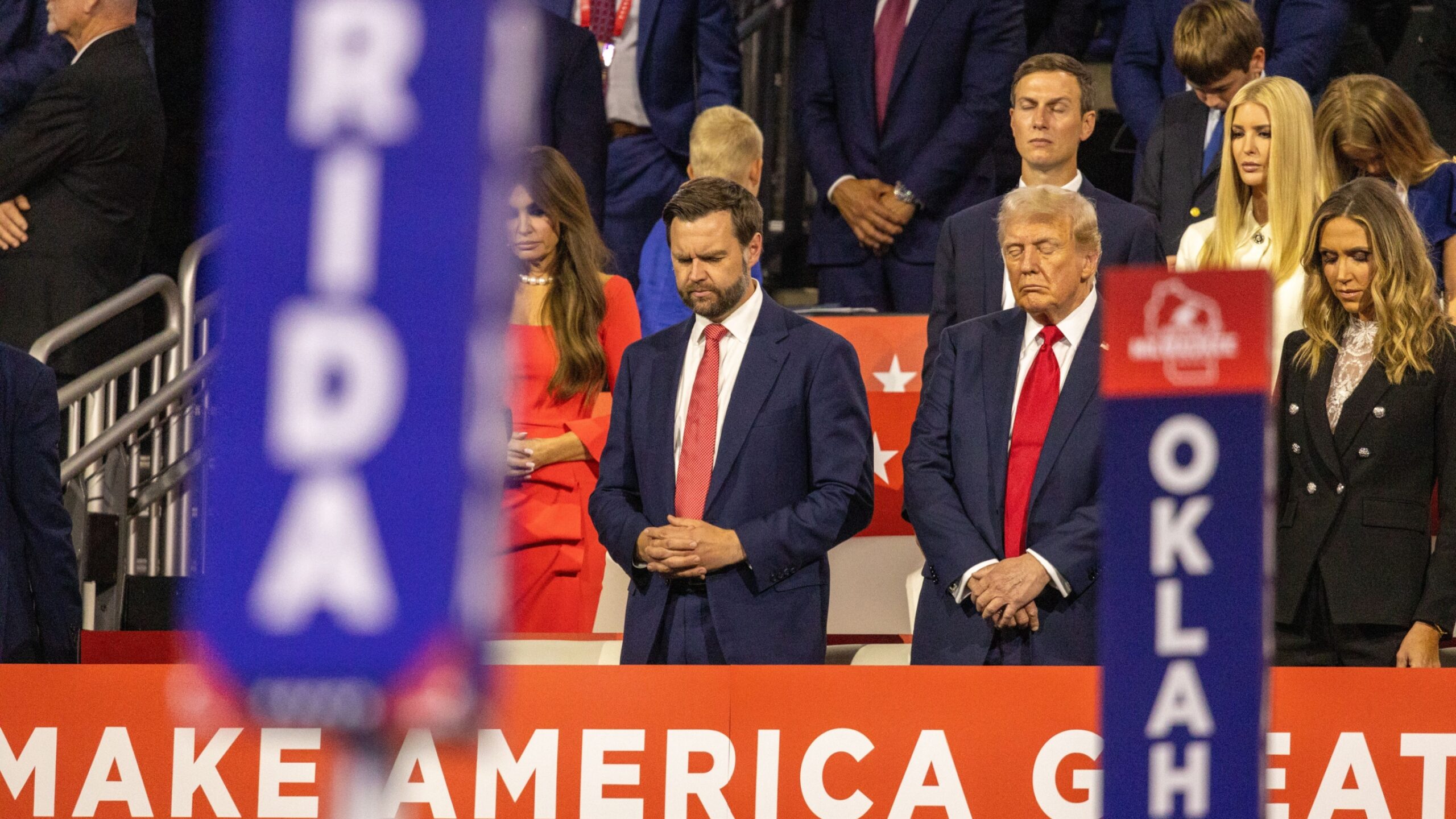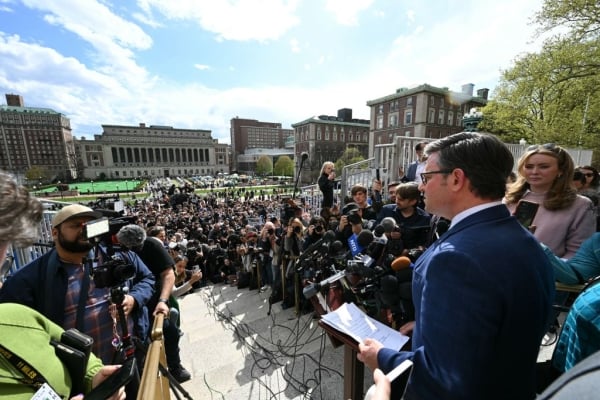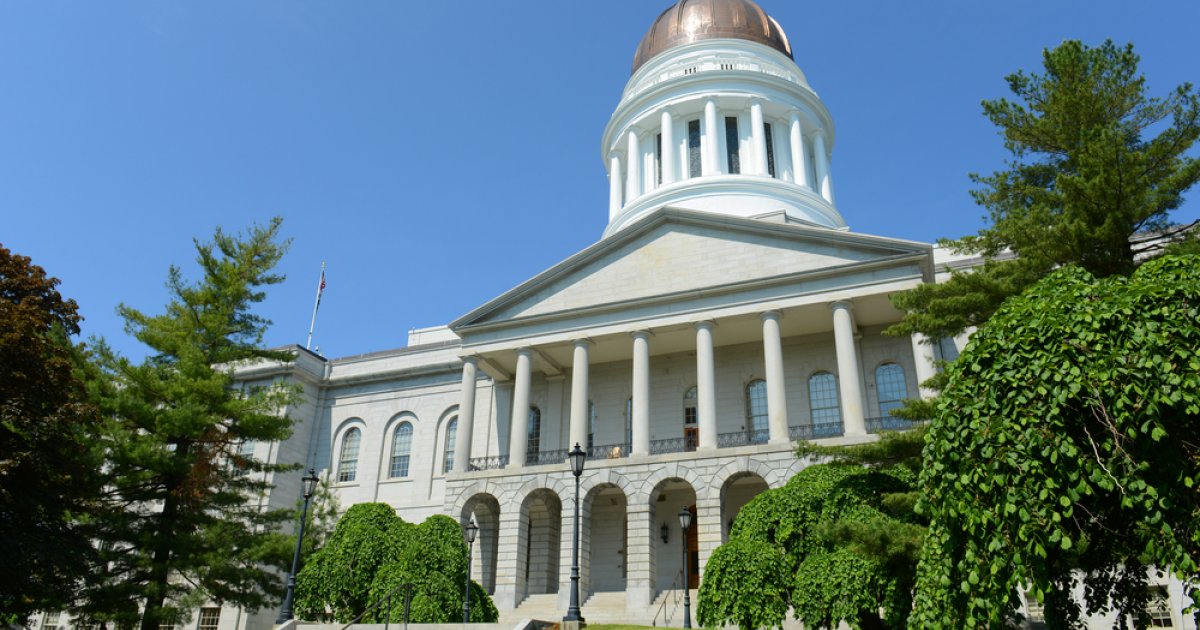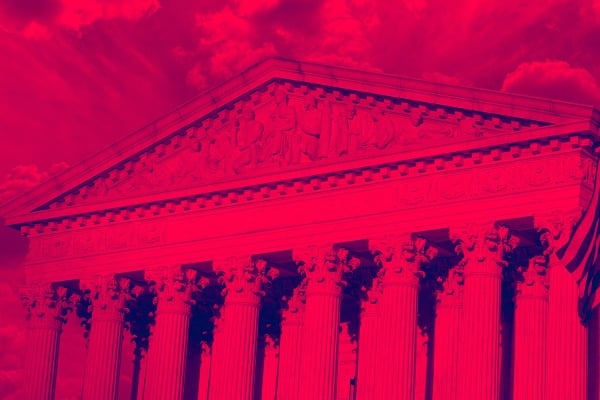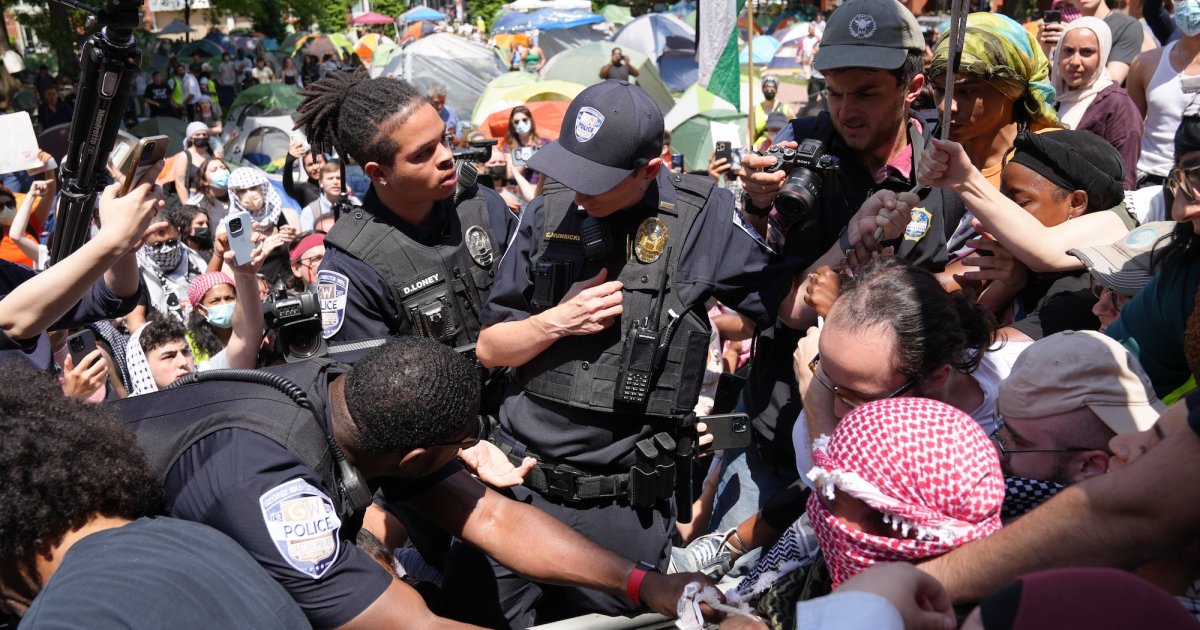If Columbia University wants a financial relationship with the federal government, the Ivy League institution will need to overhaul its discipline process, ban masks, expel some students, put an academic department under review, give its campus security “full law enforcement authority” and reform its admissions practices.
Those are just some of the sweeping and unprecedented demands the Trump administration made Thursday in a letter to the Manhattan-based institution. They come less than a week after the cancellation of $400 million in federal grants and contracts at the university. Columbia has until March 20 to respond.
“We expect your immediate compliance with these critical next steps,” three Trump officials wrote. “After which we hope to open a conversation about immediate and long-term structural reforms that will return Columbia to its original mission of innovative research and academic excellence.”
The demands escalate an already precarious situation for Columbia as it simultaneously faces pressure from the White House to comply and pressure from students and faculty to fight back.
“We are in a state of shock and disbelief, and we are working with our administration to … reaffirm free speech and shared governance on campus, and to resist all Trump efforts to take academic decisions out of the hands of academics,” said Jean Howard, a member of the executive committee of the Columbia chapter of the American Association of University Professors. “Our administration has been cautious in dealing with Trump up to now. We’re hoping they will take a more aggressive posture in the future.”
A Columbia spokesperson told Inside Higher Ed that officials are reviewing the letter but didn’t say Friday whether the university will comply with the demands. Several free speech and higher ed policy experts say the letter amounts to an unprecedented assault on higher education that could threaten foundational principles such as academic freedom. The demands, which don’t appear rooted in any specific legal authority, also offer yet another hint at how President Trump could reshape higher education.
“The subjugation of universities to official power is a hallmark of autocracy,” Jameel Jaffer, executive director of the Knight First Amendment Institute at Columbia, said in a statement. “No one should be under any illusions about what’s going on here.”
But the Trump administration says canceling the grants and contracts is necessary due to Columbia’s “continued inaction in the face of persistent harassment of Jewish students.” In the letter, officials said that the university “has fundamentally failed to protect American students and faculty from antisemitic violence.”
Building Tensions
Ted Mitchell, president of the American Council on Education, criticized the letter as an “outrageous” example of “extreme federal overreach,” adding that institutional autonomy is a critical part of American higher education.
“It’s perfectly reasonable for the federal government to hold all of those institutions accountable to civil rights laws, and we expect that,” he said. “But for the government to prescribe changes in academic structure, changes essentially in curriculum and to curtail research, that’s beyond the pale.”
One of the letter’s 12 demands is for Columbia to put its Middle East, South Asian and African Studies department under academic receivership for at least five years. This would mean that faculty lose control of the department and the university puts an outside chair in charge. The letter didn’t specify why officials focused on this particular department. But it’s worth noting the academic division is home to Joseph Massad, a controversial tenured professor whom lawmakers have accused of making anti-Israel and anti-Jewish statements over the years.
Federal scrutiny of colleges and universities, especially by Republicans, ratcheted up after the wave of pro-Palestinian protests in fall 2023 and spring 2024. But the Trump administration has only added to the pressure on colleges since it took office in January, quickly moving to cut funding to programs and institutions seemingly at odds with the president’s priorities.
Columbia has been at the epicenter of the scrutiny, particularly after an encampment popped up on the small Manhattan campus’s central lawn last April. The protests culminated in early May, when students occupied a campus building and New York City police officers eventually stormed the hall, arresting those inside.
Although other colleges faced protests and were accused of mishandling reports of antisemitic harassment and discrimination, Columbia took a hard line with protesters and was one of the few to bring in law enforcement. But that hasn’t stopped the Trump administration from targeting the university, nor has it led Columbia to draw a line and start fighting back.
On Thursday, the same day the letter was sent, Columbia handed down student sanctions related to the building occupation. The sentences ranged from multiyear suspensions and expulsions to temporary degree revocations for graduates.
Professors and other experts have warned that federal scrutiny—including high-profile grillings and subpoenas from Capitol Hill—could have damaging consequences for colleges. But alarm escalated significantly last week when the Trump administration bypassed the typical investigation process for civil rights violations and slashed Columbia’s access to grants and contracts.
The cuts, made by Trump’s novel multidepartment antisemitism task force, are the first but likely not the last.
The task force has already said at least 10 other universities are under review, including Harvard University and the University of California, Berkeley. Meanwhile, the Office for Civil Rights is investigating allegations related to antisemitism at at least 60 colleges.
Ryan Enos, a professor of government at Harvard, said Columbia needs to reject the demands and other universities need to speak up now in defense of higher education. If left on its own, Columbia could fail to defend itself, he said.
“Other universities have an imperative to come to the defense of Columbia, because this is not just about Columbia,” Enos said. “The Trump administration is trying to attack all of higher education, and Columbia cannot try to mount a defense on its own.”
Frustrations Abound
Outside policy analysts and scholars on both sides of the political spectrum are frustrated with the situation—but for different reasons.
Frederick Hess, director of education policy studies at the American Enterprise Institute, a right-leaning think tank, described Columbia’s handling of antisemitism on campus over the course of the past year as “egregious” and a “clear violation” of Title VI of the Civil Rights Act of 1964, which prohibits discrimination based on ethnicity or national origin. But at the same time, he said the Trump administration’s unclear process for determining a remedy is problematic.
“Some of the things on the list I find pretty facially plausible. Others require a much higher standard of justification,” he said. “But because they have not been transparent and … there has not been any back-and-forth, there has not been a proper demonstration of the misconduct, which would be necessary to convince me that these specific remedies are called for.”
Benjamin Ginsberg, a Johns Hopkins University professor who studies American politics and Jewish history, sees the situation as one of “competing truths.”
“The Columbia administration has needed for a long time to act against antisemitic demonstrators and vandals on the campus,” Ginsberg said, noting that arrests without indictments or suspensions are not enough. But at the same time, “the Trump administration has overreached by threatening Columbia with dire consequences,” he added.
He noted that the situation presents Columbia administrators with an opportunity.
“Sure, the [Trump] administration has overstepped. It’s threatening to fire a cannon, drop a nuclear bomb,” Ginsberg said. “But as I say, that threat gives the Columbia administration an opportunity to do things that it has needed to do and probably wanted to do for some time.”
He added that though he’s certainly hesitant when the government tries to dictate what departments are valid, in this instance, higher education has failed in its responsibility to its students. He also trusts that the Trump administration will be satisfied so long as Columbia carries out disciplinary action against students who disrupt academic life and threaten others’ safety.
“Anytime the federal government tells the university how to organize its admissions processes, or which, if any, academic departments are valid and legitimate, of course I’m concerned,” Ginsberg said. “But my guess is that nothing will come of those particular demands. I mean, I hope the university won’t cave in.”
On the other hand, Eddy Conroy, a senior education policy manager at New America, a left-leaning think tank, said all the Trump administration’s recent actions should be “deeply troubling.”
Columbia has already demonstrated an aggressive response to student protests, which should be protected by the First Amendment, Conroy said, and it’s not up to the federal government to determine whether those disciplinary procedures were adequate.
“We have an important history of peaceful protest in the United States, and sit-ins are part of that. Columbia can choose if it wants to deal with those things through its own disciplinary procedure or by pursuing trespassing charges,” he said. But to Trump, this “is a test case of how far we can push things when it comes to suppressing speech.”
Conroy believes that the president is trying to make an example of Columbia in the hops that other institutions will then capitulate without fight, and the university’s response as a test dummy isn’t helping.
“The [Trump] administration hits Columbia, and Columbia cowers and says, ‘Please hit us harder,’” he said.
To Howard, the Columbia AAUP representative, Trump’s actions are a threat to the gemstone that is American higher education.
We’ve become “the greatest university system in the world. But that requires independence. It requires the free expression of differing viewpoints,” she said. Trump’s demands are “so undemocratic, so against the norms and conventions of university life, that to comply would just destroy the heart of the institution.”
 Pam McElvane
Pam McElvane


